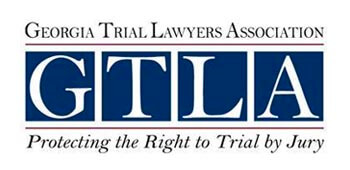Riding a motorcycle can be exhilarating and liberating, but it’s crucial to acknowledge and understand the risks involved. Motorcycles, though fewer in numbers, are disproportionately involved in severe road accidents, making it essential to evaluate survival odds and safety factors.
Motorcycle Crash Survival Statistics
According to recent data, approximately 93% of motorcyclists survive a motorcycle crash. While this statistic is encouraging at first glance, it doesn’t fully capture the reality that many survivors sustain severe and potentially life-altering injuries. Survival, therefore, doesn’t always equate to escaping harm entirely, which makes understanding risks and safety measures essential for every rider.
Survival rates can also vary significantly depending on location, traffic conditions, and road infrastructure. Riders in urban areas typically benefit from quicker emergency responses compared to those in remote rural regions.
Common Injuries Sustained in Motorcycle Accidents
Motorcycle crashes often lead to severe physical trauma, including:
- Traumatic Brain Injuries (TBI): Frequently resulting from head impacts, especially when helmets aren’t used.
- Spinal Cord Injuries: Potentially leading to partial or complete paralysis and long-term disability.
- Internal Organ Damage: Often caused by blunt-force impacts during crashes, requiring immediate medical intervention.
- Broken Bones and Fractures: Common due to the rider’s exposure during a crash, causing prolonged recovery periods and complications.
These injuries not only affect physical health but often lead to significant emotional stress and financial burden due to medical bills and lost income.
Factors Influencing Survival Odds
Several critical factors can dramatically influence a motorcyclist’s chance of surviving a crash:
- Speed at Impact: High-speed crashes exponentially increase the severity of injuries and likelihood of fatalities.
- Protective Gear: Proper helmets, gloves, jackets, and boots significantly reduce the severity of injuries.
- Availability of Immediate Medical Response: Quick access to quality trauma care significantly increases survival odds, especially during the critical “golden hour” after an accident.
- Environmental Conditions: Poor visibility, adverse weather, slippery roads, or nighttime riding can greatly increase accident severity.
- Behavior of Other Drivers: Distracted, impaired, or reckless driving by others on the road substantially increases risks for motorcyclists.
Why Are Motorcyclists at Greater Risk?
Motorcyclists inherently face higher risks due to several factors:
- Limited Visibility: Motorcycles’ smaller profiles can lead to other motorists overlooking them, particularly at intersections or in heavy traffic.
- Lack of Structural Protection: Unlike cars equipped with airbags, seat belts, and protective cabins, motorcycles provide minimal physical protection to riders.
- Motorcyclist Behavior: Occasionally, riders themselves engage in risky behaviors such as lane splitting, speeding, or aggressive maneuvers, inadvertently increasing their risk.
The Importance of Helmets and Safety Gear
Helmets remain one of the most effective protective measures available. Research consistently demonstrates helmets are approximately 37% effective in reducing fatalities and about 67% effective in preventing serious brain injuries. Regardless of whether helmets are mandated by local laws, motorcyclists should prioritize helmet use along with comprehensive riding gear—including jackets, gloves, and boots—to enhance their personal safety.
Defensive Riding and Preventive Measures
Adopting defensive riding techniques can significantly lower accident risks. Key practices include:
- Maintaining safe speeds and following distances.
- Increasing visibility by using reflective clothing and proper lighting.
- Staying vigilant to anticipate potential hazards caused by other drivers’ behaviors.
- Participating in regular motorcycle safety training or courses to sharpen riding skills and emergency responsiveness.
Legal Considerations After a Motorcycle Accident
Even careful riders can become victims of another party’s negligence. If you find yourself injured due to another driver’s recklessness or negligence, it’s essential to consult with a specialized motorcycle accident attorney. Legal support can help ensure you receive adequate compensation to cover medical bills, lost wages, rehabilitation expenses, emotional distress, and other costs related to your recovery.
Final Thoughts: Balancing Thrill and Safety
Motorcycling offers a unique blend of freedom and adventure, but this comes with inherent risks. Understanding survival statistics, knowing injury risks, investing in quality safety gear, and practicing defensive riding strategies can significantly improve your safety. Being informed and prepared empowers you to enjoy riding responsibly, reducing your chances of serious harm, and helping you confidently navigate the open road.





